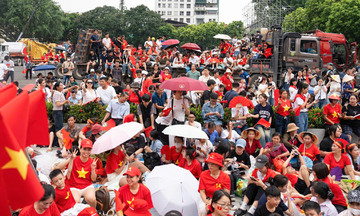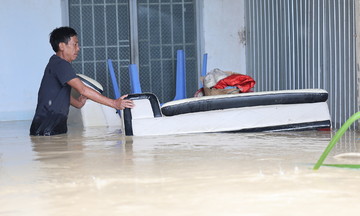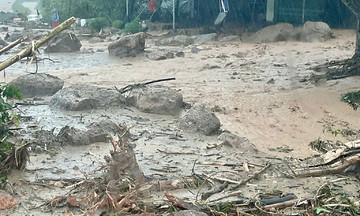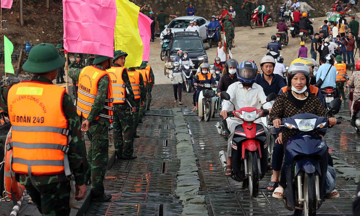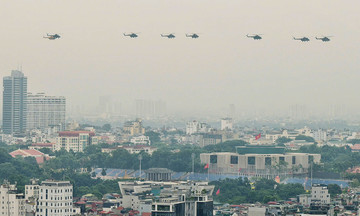This opinion was raised by Vo Hoang Ngan, director of the Ho Chi Minh City Construction Department, at a discussion session of the second meeting of the Ho Chi Minh City People's Council on Tuesday afternoon, 24/7. According to Ngan, the department is proposing and coordinating with the Department of Home Affairs to advise the City People's Committee and the City People's Council on forming an appropriate force so that wards and communes have a patrol force to inspect and handle violations of urban and construction order.
"Without this force, it is very difficult for wards and communes in Ho Chi Minh City to effectively manage construction order," Ngan said.
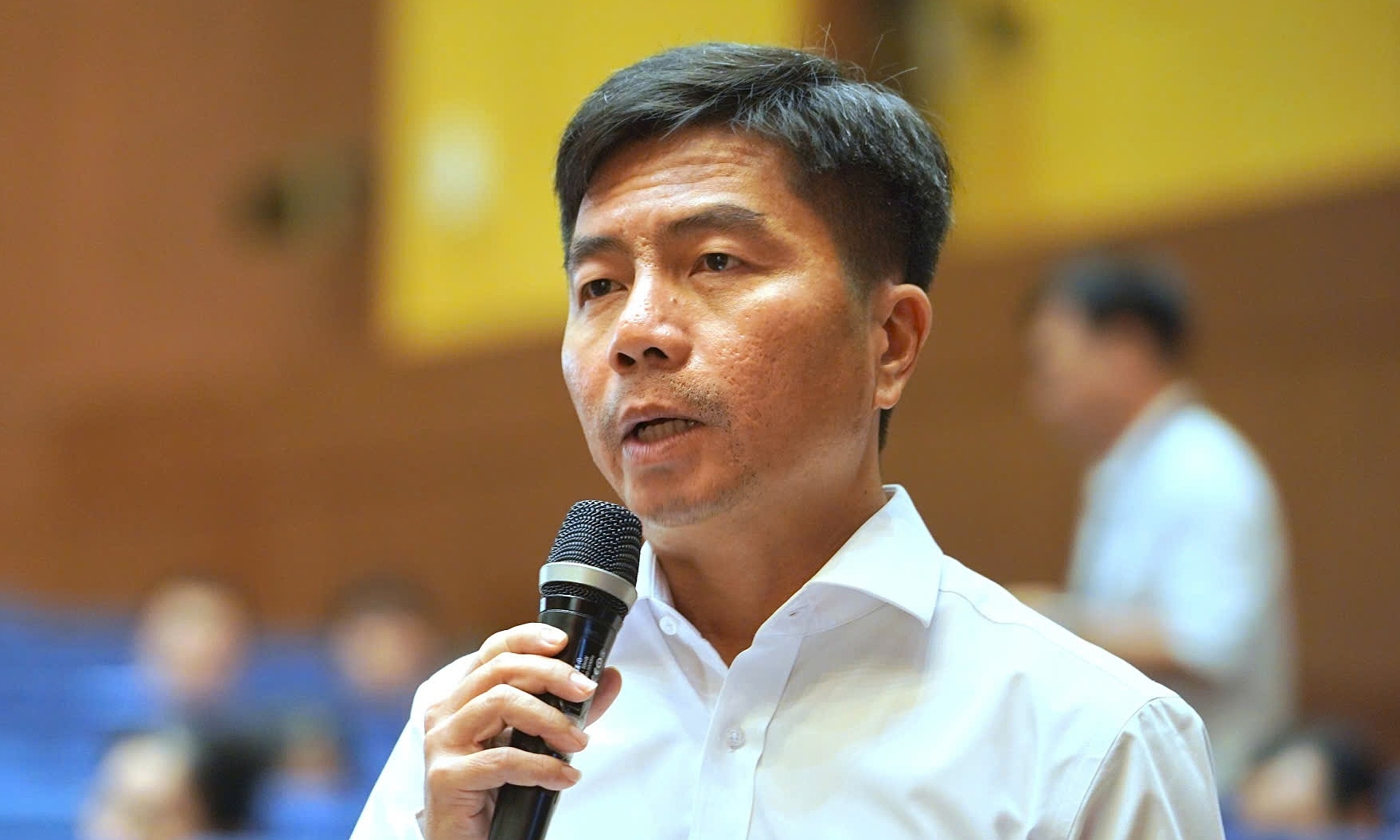 |
Vo Hoang Ngan, Director of the Ho Chi Minh City Construction Department, at the Ho Chi Minh City People's Council meeting on Tuesday afternoon, 24/7. Photo: An Phuong |
Vo Hoang Ngan, Director of the Ho Chi Minh City Construction Department, at the Ho Chi Minh City People's Council meeting on Tuesday afternoon, 24/7. Photo: An Phuong
When the two-level government model was implemented from 1/7, the Urban Management Team ceased operations, and the Construction Department's inspectorate was also dissolved according to general regulations. Only specialized departments remain, and they no longer have the same inspection capacity as before.
Under current regulations, the legal framework for a specialized urban construction order model at the ward, commune, and special zone levels is not clearly defined. There are only specialized departments for Economy - Infrastructure - Urban Affairs. However, the staffing of these departments is also quite limited, making it difficult to ensure patrols, inspections, and handling of construction and urban order violations within the wards.
Since the beginning of July, the Construction Department has temporarily allocated personnel to wards to inspect and handle construction order violations. In some areas known as hotspots for illegal construction, the department has increased its forces and coordinated with local authorities to focus on resolving the issues decisively.
Earlier, delegate Nguyen Thi Tuyet Nhung pointed out that many wards and communes with rapid urbanization lack a mechanism to establish urban management teams, which creates difficulties in inspecting and handling construction and urban violations.
Specifically, Tan Uyen ward (formerly Binh Duong) covers over 94 square kilometers with a population of over 81,000 people and is rapidly developing with numerous industrial clusters and housing projects. Without a dedicated force, it will be very difficult to maintain control. Therefore, she proposed allowing ward and commune People's Committees to establish specialized urban management teams to meet local management requirements.
Regarding this proposal, Nguyen Thi Hong Tham, deputy director of the Ho Chi Minh City Department of Home Affairs, said that according to the guidance of the Steering Committee for summarizing Resolution 18, communes only have specialized agencies and public service units; they do not have separate functional agencies for urban construction order management. The ward-level Economy - Infrastructure - Urban Affairs Department is responsible for state management of construction.
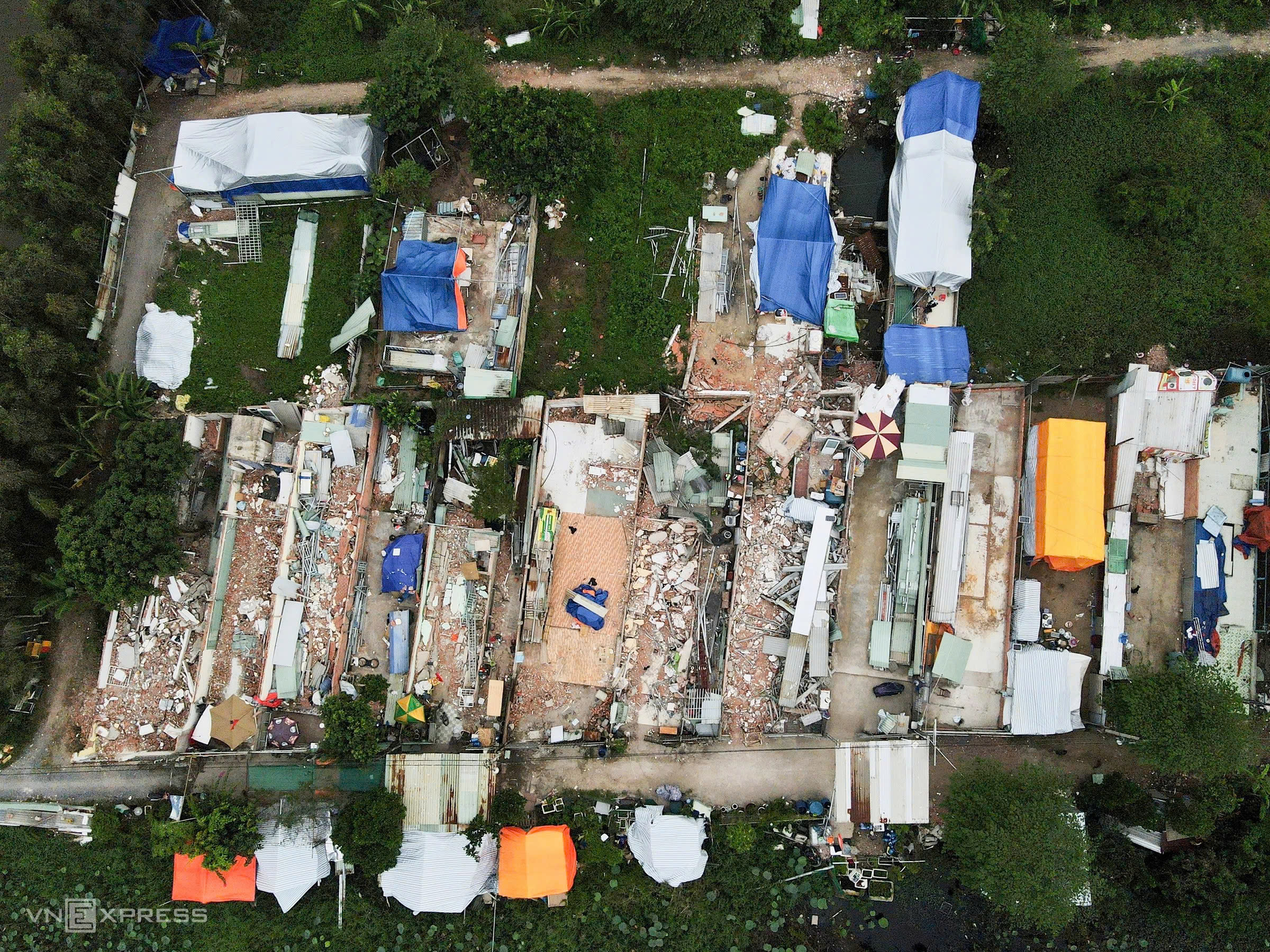 |
Several houses built illegally on agricultural land in Tan Tao ward, formerly Binh Tan district, were demolished in 2023. Photo: Dinh Van |
Several houses built illegally on agricultural land in Tan Tao ward, formerly Binh Tan district, were demolished in 2023. Photo: Dinh Van
Previously, the Ho Chi Minh City Construction Department had a specialized inspection force with nearly 1,000 personnel. According to the personnel arrangement plan when the department's inspectorate was dissolved, 286 civil servants were assigned to wards and communes to work in specialized departments, and over 700 collaborators had their contracts terminated.
Le Tuyet








